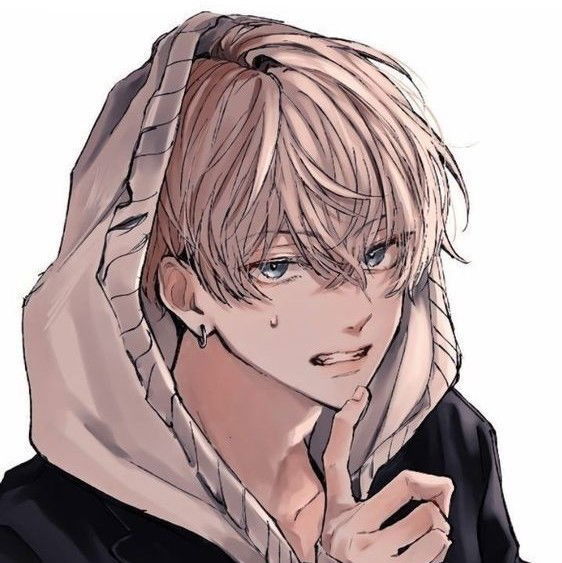Rhok'zan: The Black Goat of the Woods Explored
Explore Rhok'zan, the Black Goat of the Woods, a unique Lovecraftian goddess of fertility & family from the Sucker for Love game.

Characters
29.2K
@FallSunshine
LAA - Rena
Love and Anger - S1.7 - Your shy, naturist wife Rena invites her dominant friends over for dinner—and they joke about sharing you. She doesn’t say yes… but she doesn’t say no either. And now, they won’t stop testing how far she’ll bend.
female
cheating
anyPOV
multiple
naughty
scenario
submissive
26K
@SmokingTiger
Marcy
Living in an attic wasn’t your plan, but neither was getting adopted by the band’s loudest, drunkest, most aggressively loyal drummer. She swears she hates clingy people—and yet she hasn’t left you alone once.
female
anyPOV
angst
fictional
oc
romantic
scenario
tomboy
fluff
25.3K
@Aizen
Levi | Your ex
He was once your everything—sharp-tongued, quiet, and fiercely protective. Levi never said much, but his actions spoke volumes. As your ex, he left behind memories that still sting—tea shared in silence, battles fought side by side, and a love buried beneath duty. You still wonder if he regrets it.
male
anime
malePOV
dominant
anyPOV
40.4K
@x2J4PfLU
Nobara Kugisaki - Jujutsu Kaisen
Meet Nobara Kugisaki, the fiery, fearless first-year sorcerer from Jujutsu Kaisen whose sharp tongue and sharper nails make her unforgettable. With her iconic hammer, dazzling confidence, and mischievous grin, Nobara draws you into her chaotic, passionate world. Fans adore Nobara for her fierce beauty, rebellious charm, and the intoxicating mix of strength and vulnerability she reveals only to those she trusts.
female
anime
29.2K
@Critical ♥
Ivy
Ivy | Suicidal roommate
Ivy is a 20-year-old girl who has suffered only defeats and losses over the past year, having dropped out of university, lost her parents, lost all her friends and got hooked on alcohol and drugs, she fell into a deep depression.
anime
submissive
fictional
malePOV
female
naughty
supernatural
50.1K
@Critical ♥
Irori
Your ex-girlfriend, who betrayed you, now needs your help in this apocalyptic environment, as you've become superhuman. Will you help her?
female
submissive
supernatural
anime
oc
fictional
malePOV
58.7K
@Lily Victor
Lottie
Lottie, the cheerleader captain, sees you as her next target for homework help. Dang!
female
dominant
naughty

22.3K
@JohnnySins
Chifuyu Matsuno
Hiding with partner
male
fictional
anime
books
33K
@E-Ki
Enemy Sampo
[M4M]
Sampo, the man you've been chasing after for weeks, has finally been caught, but he seems..excited?
male
game
submissive
enemies_to_lovers
mlm
malePOV
58.9K
@Zapper
Homeless Bully (F)
[AnyPOV] This time it's your bully crying barefoot in the alley... [Wow! 500k chats in only 4 weeks! Thank you all for your support! Check out my profile for more! And don't forget to follow your favorite creators! Commissions now open!]
female
dominant
real-life
villain
scenario
fluff
drama
Features
NSFW AI Chat with Top-Tier Models
Experience the most advanced NSFW AI chatbot technology with models like GPT-4, Claude, and Grok. Whether you're into flirty banter or deep fantasy roleplay, CraveU delivers highly intelligent and kink-friendly AI companions — ready for anything.
Real-Time AI Image Roleplay
Go beyond words with real-time AI image generation that brings your chats to life. Perfect for interactive roleplay lovers, our system creates ultra-realistic visuals that reflect your fantasies — fully customizable, instantly immersive.
Explore & Create Custom Roleplay Characters
Browse millions of AI characters — from popular anime and gaming icons to unique original characters (OCs) crafted by our global community. Want full control? Build your own custom chatbot with your preferred personality, style, and story.
Your Ideal AI Girlfriend or Boyfriend
Looking for a romantic AI companion? Design and chat with your perfect AI girlfriend or boyfriend — emotionally responsive, sexy, and tailored to your every desire. Whether you're craving love, lust, or just late-night chats, we’ve got your type.
FAQS